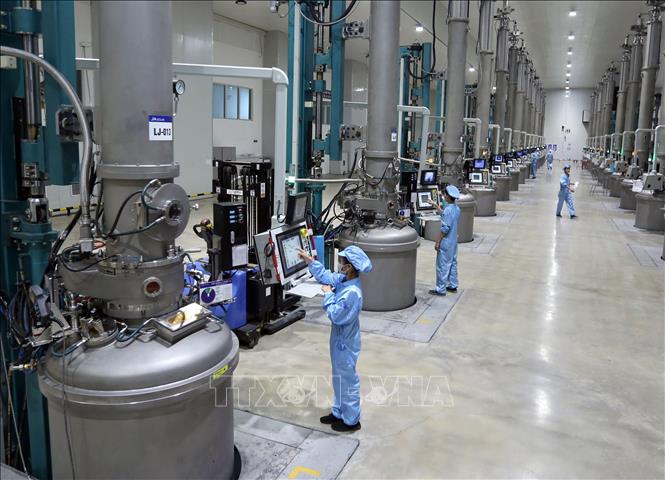
According to Decree No. 236/2025/ND-CP of the Government on the application of global minimum tax, from October 15, 2025, Vietnam will officially apply a global minimum tax of 15% to foreign direct investment (FDI) enterprises with consolidated revenue of 750 million Euro (EUR) or more. This new policy helps Vietnam promptly adapt and synchronize the global minimum tax policy according to international practices. To date, more than 100 countries have applied regulations on global minimum tax.
Vietnam has always been seen as an attractive destination for international investors. With 2,926 newly licensed FDI projects from 82 countries and territories in the first 9 months of 2025, although the total newly registered capital reached 12.39 billion USD, a slight decrease of 8.6%, the increase in the number of projects shows that investors, especially small and medium enterprises, are still actively seeking opportunities and expanding their presence in Vietnam.
One of the important factors contributing to attracting FDI capital is that Vietnam has many tax incentives and other terms to attract investment. After synthesizing these incentives, in reality, businesses only pay about 12.5% tax, lower than the global minimum tax rate.
However, many multinational corporations with many branches around the world often take advantage of incentives and transfer pricing to reduce tax obligations; this has a negative impact, causing inequality in trade competition for businesses without a global network. A report by the Ministry of Finance shows that in 2023, up to 56% of FDI enterprises reported losses, an increase of more than 21% compared to the previous year, although revenue and assets both increased. Of these, more than 5,000 enterprises had negative equity, with a total accumulated loss value of up to VND908,000 billion, a paradox that clearly reflects the risk of "fake losses, real profits" from transfer pricing activities.
Therefore, the policy of applying global minimum tax will have a “double impact”, both creating fairness among FDI enterprises and contributing to preventing tax base erosion, although it may have some impact on FDI capital flows. For FDI enterprises that are no longer eligible for tax incentives as before, the Vietnamese tax authorities will collect additional taxes to ensure a minimum tax rate of 15%. Therefore, these enterprises will have to consider, comply with new tax obligations and adjust their financial plans accordingly.
According to Dr. Le Quang Minh (University of Economics - Vietnam National University, Hanoi), Vietnam's application of Global Minimum Tax (GMT) is a strategic step, demonstrating responsibility and proactive integration with common world standards. In the context of competition to attract investment, this policy is meaningful in creating a level playing field. GMT reduces the advantage of "tax havens", forcing countries to compete based on more sustainable factors instead of just using low tax incentives. This helps Vietnam affirm a transparent and fair investment environment.
This policy also helps Vietnam reposition its competitive advantage through quality factors such as: favorable business environment, high-quality human resources, developed infrastructure and political stability. At the same time, applying global minimum tax not only helps increase budget revenue but also affirms Vietnam's tax sovereignty.
Dr. Le Quang Minh commented that the global minimum tax policy will have an impact on large FDI enterprises and investment capital flows. Regarding the structure of investment capital flows, FDI capital flows may shift. Investment projects that only rely on tax incentives to maximize profits may decrease. Instead, Vietnam will become more attractive to strategic investors who seek competitive advantages based on production efficiency, innovation, and human resource quality. Capital flows will tend to focus on high-tech industries, R&D, and green production, in line with Vietnam's sustainable development orientation.
Along with changes in tax policy, Vietnam's FDI attraction strategy will need to change. Traditional corporate income tax incentives in some localities or investment sectors will no longer be suitable in the context of a widely applied minimum tax of 15%. "At that time, along with reorienting incentive policies towards other forms of support instead of direct tax reduction, Vietnam will have the opportunity to proactively screen and search for foreign investors who truly have the need and commitment to strong, long-term investment," Dr. Le Quang Minh raised the issue.
In fact, to continue attracting FDI capital flows into priority areas, Vietnam is also implementing many decisive and important solutions such as issuing the Foreign Investment Cooperation Strategy for the period 2021 - 2030; in which, focusing on project quality, especially in priority areas calling for investment. Vietnam is also making efforts to improve institutions, issue preferential policies, establish investment support funds, develop international financial centers, and promote investment in improving transport and energy infrastructure.
Mr. Alexander Ziehe, Chairman of the German Business Association in Vietnam, highly appreciated Vietnam's infrastructure reforms and efforts to create a transparent business investment environment and believed that this will continue to enhance Vietnam's attractiveness to high-quality, long-term FDI capital flows, especially in areas where businesses have strengths.
Along with the preferential policies on tax, land, infrastructure issued, streamlining the administrative apparatus and investment procedures... all aim to maximize convenience for foreign enterprises when investing in Vietnam.
At recent meetings with FDI investors, Deputy Prime Minister Nguyen Chi Dung always emphasized that Vietnam prioritizes attracting selective foreign direct investment (FDI), focusing on key areas such as: strategic infrastructure, science and technology, innovation, digital transformation, biotechnology, new materials, semiconductor chips and artificial intelligence.
“The Government is always committed to creating favorable conditions and accompanying international partners, domestic and foreign enterprises and investors to promote effective and sustainable investment and business cooperation activities,” Deputy Prime Minister Nguyen Chi Dung affirmed.
Source: https://baotintuc.vn/kinh-te/viet-nam-nang-tam-thu-hut-dong-von-fdi-chat-luong-20251016114258955.htm





![[Photo] Dan Mountain Ginseng, a precious gift from nature to Kinh Bac land](/_next/image?url=https%3A%2F%2Fvphoto.vietnam.vn%2Fthumb%2F1200x675%2Fvietnam%2Fresource%2FIMAGE%2F2025%2F11%2F30%2F1764493588163_ndo_br_anh-longform-jpg.webp&w=3840&q=75)


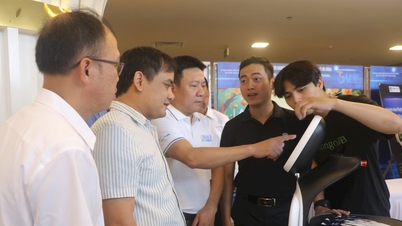

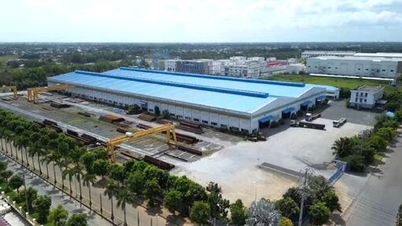

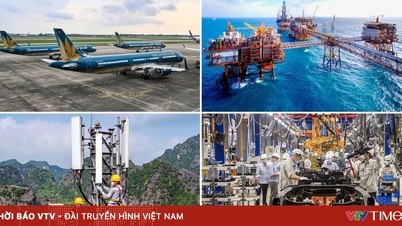

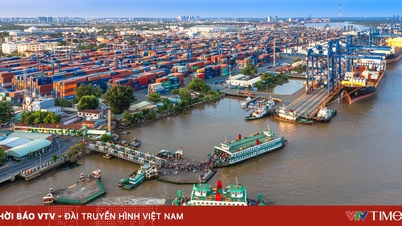


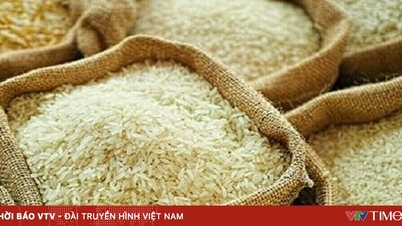




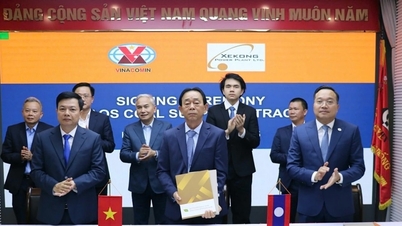






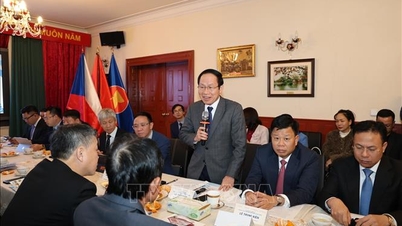

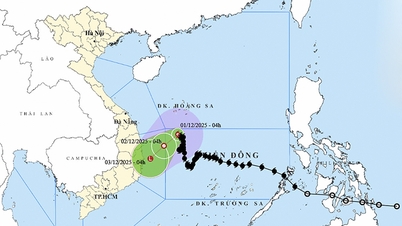
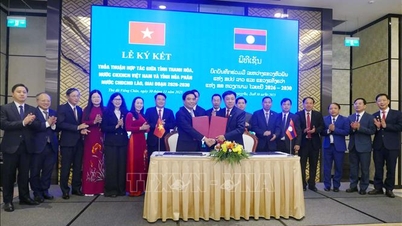
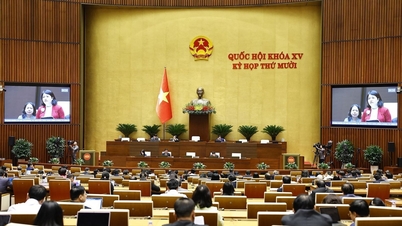
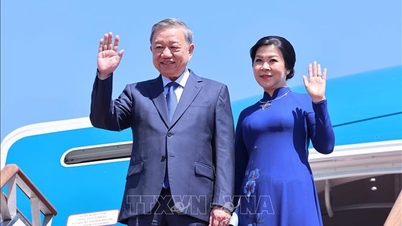



































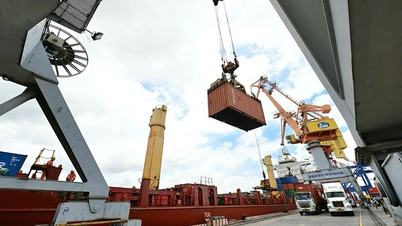


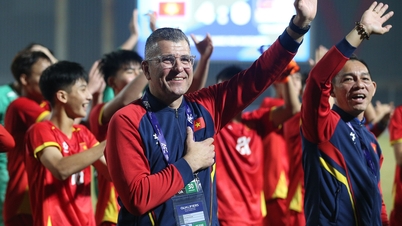


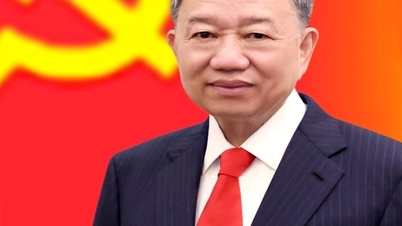

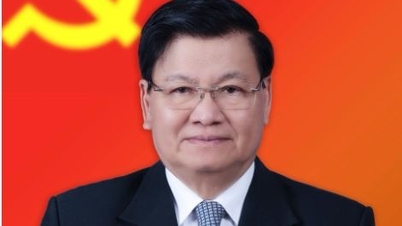
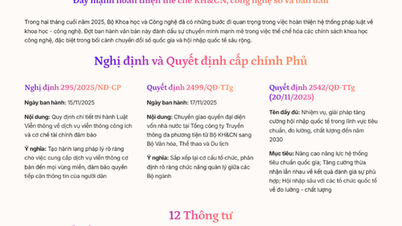

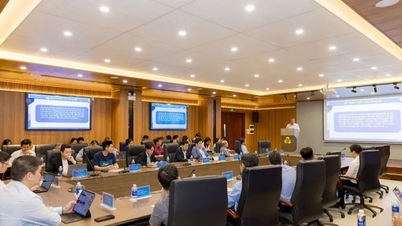
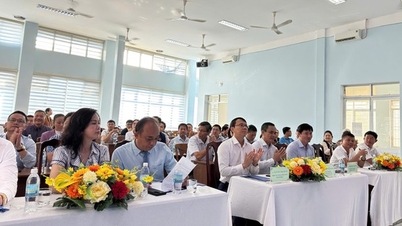
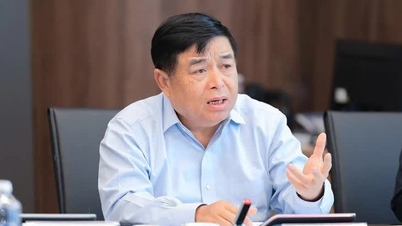






















Comment (0)